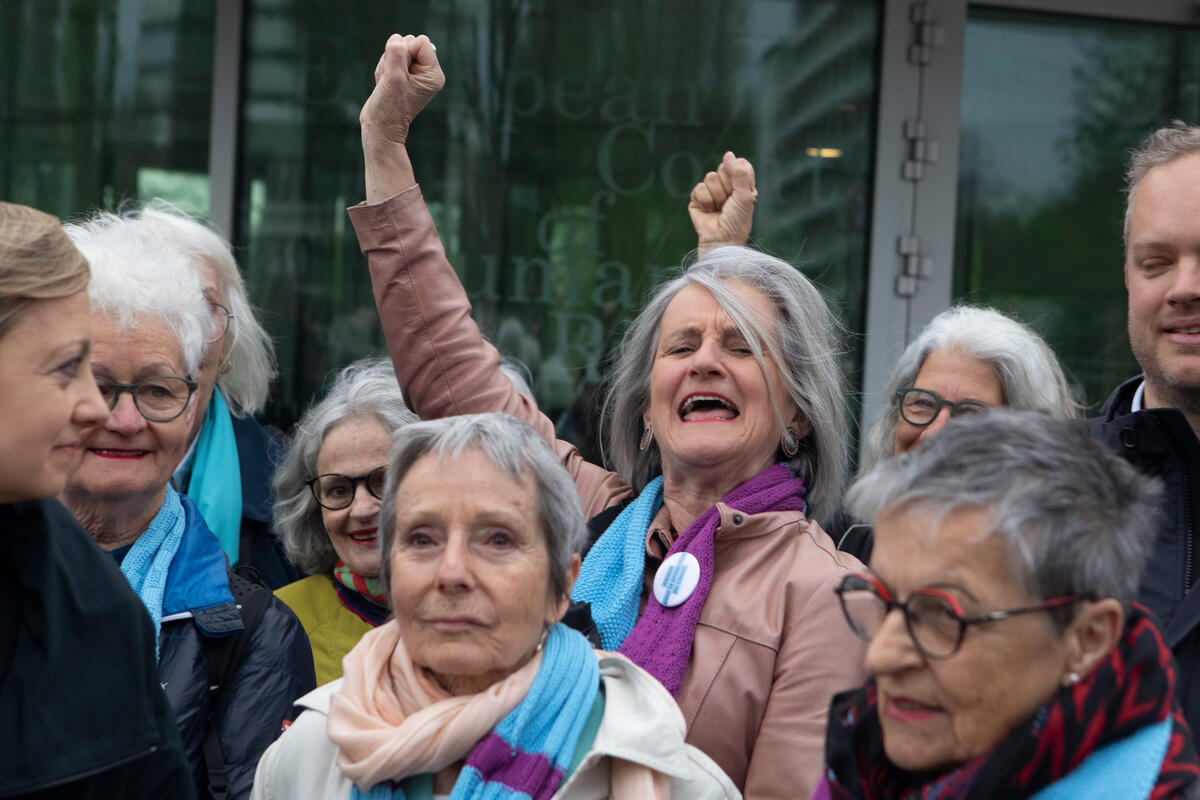In a historic decision that reverberated across Switzerland and beyond, the European Court of Human Rights (ECHR) has ruled that the Swiss government’s failure to implement effective climate change policies constitutes a violation of human rights. At the heart of this landmark case is the association known as KlimaSeniorinnen Schweiz, or “Senior Women for Climate Protection.” This group of over 2,500 elderly Swiss women, supported by Greenpeace Switzerland, argued that the Swiss government’s inadequate climate policies put them at an increased risk of dying during heatwaves, a scenario that disproportionately affects women and older adults.
This groundbreaking verdict, delivered on 9 April 2024, underscores the intrinsic link between environmental action and the protection of fundamental human rights, setting a precedent that could influence global climate litigation.
The Plaintiffs
The legal journey of senior women for climate protection began in 2016, culminating in a victory that cannot be appealed, compelling the Swiss federal government to intensify its efforts to reduce emissions in alignment with the Paris Agreement’s goal of limiting global warming to 1.5°C.
The Verdict’s Implications
The ECHR’s decision is not just a win for the KlimaSeniorinnen but a monumental step forward in climate litigation. By acknowledging the failure to combat climate change as a violation of the right to life, the court has opened the door for future cases to link environmental inaction with human rights infringements. This ruling also highlights the procedural human rights violations, pointing out the Swiss legal system’s shortcomings in providing sufficient access to justice and the possibility of an effective appeal.
Switzerland’s Climate Challenge
Switzerland faces a unique challenge, warming at more than twice the global average rate, with its glaciers melting rapidly. Despite outlining plans for deeper emissions cuts, a proposal was rejected by voters in 2021, deemed too burdensome. This ruling from the ECHR mandates the Swiss government to take more decisive action, potentially revising its 2030 emissions reduction targets to better align with international goals.
For Switzerland, this ruling is a call to action, urging the country to lead by example in the global effort to combat climate change and protect the rights of its citizens.
A Global Precedent
This verdict from the ECHR is not just a national issue but a global signal that the fight against climate change is inextricably linked to the protection of human rights. It serves as a reminder that governments worldwide must take their environmental responsibilities seriously or face legal consequences. The case of the KlimaSeniorinnen could inspire similar actions in other countries, leveraging the legal system to enforce climate action.
Looking Forward
As Switzerland and the world digest the implications of this historic ruling, the message is clear: climate inaction is not just an environmental issue but a human rights concern. This decision by the ECHR sets a precedent that could shape the future of climate litigation, emphasizing the need for governments to act decisively in the face of the climate crisis.
The Helvetica Times remains committed to providing comprehensive coverage of this story and its developments, understanding its significance for Switzerland and the broader international community.


